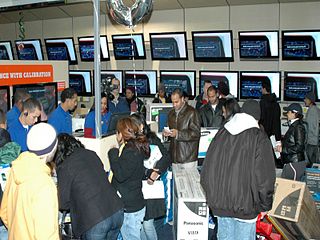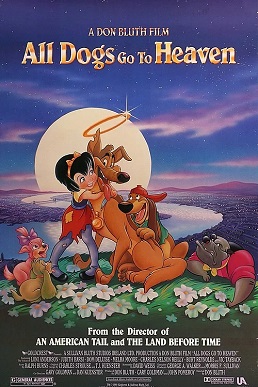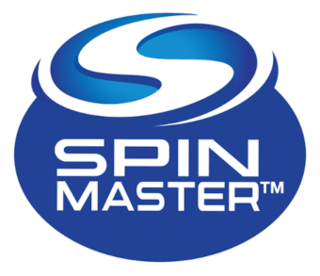Related Research Articles

Mattel, Inc. is an American multinational toy manufacturing and entertainment company founded in Los Angeles by Harold Matson and the husband-and-wife duo of Ruth and Elliot Handler in January 1945 and headquartered in El Segundo, California. Mattel has a presence in 35 countries and territories; its products are sold in more than 150 countries. Mattel consists of three business segments: North America, International and American Girl.

Twister is a game of physical skill produced by Milton Bradley Company and Winning Moves Games USA. It is played on a large plastic mat that is spread on the floor or ground. The mat has four rows of six large colored circles on it with a different color in each row: red, yellow, green and blue. A spinner tells players where they have to place their hand or foot. The game promotes itself as "the game that ties you up in knots".

Consumer electronics or home electronics are electronic equipment intended for everyday use, typically in private homes. Consumer electronics include devices used for entertainment, communications and recreation. These products are usually referred to as black goods due to many products being housed in black or dark casings. This term is used to distinguish them from "white goods" which are meant for housekeeping tasks, such as washing machines and refrigerators, although nowadays, these would be considered black goods, some of these being connected to the Internet. In British English, they are often called brown goods by producers and sellers. In the 2010s, this distinction is absent in large big box consumer electronics stores, which sell entertainment, communication and home office devices, light fixtures and appliances, including the bathroom type.

Hiroshi Yamauchi was a Japanese businessman and the third president of Nintendo, joining the company on 25 April 1949 until stepping down on 24 May 2002, being subsequently succeeded by Satoru Iwata. During his 53-year tenure, Yamauchi transformed Nintendo from a hanafuda card-making company that had been active solely in Japan into a multibillion-dollar video game publisher and global conglomerate. He was the great-grandson of Fusajiro Yamauchi, Nintendo's first president and founder. Hiroshi Yamauchi owned the Seattle Mariners baseball team from 1992-2016, until after his death.

All Dogs Go to Heaven is a 1989 animated musical fantasy comedy-drama film directed by Don Bluth and co-directed by Gary Goldman and Dan Kuenster. Set in New Orleans in 1939, it tells the story of Charlie B. Barkin, a German Shepherd that is murdered by his former friend, Carface Carruthers. Charlie escapes from Heaven to return to Earth where his best friend, Itchy Itchiford, still lives, in order to take revenge on Carface. Instead, he ends up befriending a young orphan girl named Anne-Marie. In the process, Charlie learns an important lesson about kindness, friendship and love.
Cheapass Games is a game company founded and run by game designer James Ernest, based in Seattle, Washington. Cheapass Games operates on the philosophy that most game owners have plenty of dice, counters, play money, and other common board game accessories, so there is no need to bundle all of these components with every game that requires them. Cheapass games thus come packaged in white envelopes, small boxes, or plastic resealable bags containing only those components unique to the game - typically a rules sheet, a playing board printed on card stock, and game cards banded by magazine-cutout "sleeves". This allows the company to produce games for prices well below the market average. Later, Cheapass started offering some higher-quality, full color games under the "James Ernest Games" brand.

A mobile device, also referred to as a digital assistant, is a computer small enough to hold and operate in the hand. Mobile devices typically have a flat LCD or OLED screen, a touchscreen interface, and digital or physical buttons. They may also have a physical keyboard. Many mobile devices can connect to the Internet and connect with other devices, such as car entertainment systems or headsets, via Wi-Fi, Bluetooth, cellular networks, or near-field communication. Integrated cameras, the ability to place and receive voice and video telephone calls, video games, and Global Positioning System (GPS) capabilities are common. Power is typically provided by a lithium-ion battery. Mobile devices may run mobile operating systems that allow third-party applications to be installed and run.

Elizabeth J. Magie Phillips was an American game designer, writer, feminist, and Georgist. She invented The Landlord's Game, the precursor to Monopoly, to illustrate teachings of the progressive era economist Henry George.

Scene It? is an interactive film series created by Screenlife Games, in which players answer trivia questions about films or pop culture. The games were first developed to be played with questions read from trivia cards or viewed on a television from an included DVD or based on clips from movies, TV shows, music videos, sports and other popular culture phenomena. Scene It? was made available as a mobile game for iPhone, iPad, on Xbox 360, PlayStation 3 and Wii as well as two social network games on Facebook. The series was discontinued in 2012, after Paramount Pictures, who owned Screenlife Games after 2008, closed the studio. The series was revived in 2022 by Imagination Games and Paramount Pictures, with streaming functionality replacing DVDs.
The long-running British science fiction television series Doctor Who has since its beginnings in 1963 generated many hundreds of products related to the show, from toys and games to picture cards and postage stamps. This article is not an exhaustive list of merchandise but attempts to present a flavour of the type of material that has been produced. This entry mainly concentrates on "official" spin-offs, that is to say, material sanctioned by the British Broadcasting Corporation, which produces the series.
G.I. Joe: A Real American Hero is a military-themed line of action figures and toys in Hasbro's G.I. Joe franchise. The toyline lasted from 1982 to 1994, producing well over 500 figures and 250 vehicles and playsets. The line reappeared in 1997 and has continued in one form or another to the present day. It was supported by two animated series as well as a major comic series published by Marvel Comics.

Asmodee is a French publisher of board games, card games and role-playing games (RPGs). Founded in 1995 to develop their own games and to publish and distribute for other smaller game developers, they have since acquired numerous other board game publishers. A division, Twin Sails Interactive, publishes video game adaptations of Asmodee games.

Garry Kitchen is a video game designer, programmer, and executive best known for his work at Activision during the early years of the company's history. He has developed games for the Atari 2600, Commodore 64, Nintendo Entertainment System, and Super Nintendo Entertainment System, as well as co-founded Absolute Entertainment with ex-Activision developers. His port of Donkey Kong for the Atari 2600 was a major hit for Coleco, selling over 4 million copies. His other 2600 work includes Keystone Kapers and Pressure Cooker for Activision and Space Jockey for U.S. Games. He also wrote Garry Kitchen's GameMaker and The Designer's Pencil for the Commodore 64.
Japanese popular culture includes Japanese cinema, cuisine, television programs, anime, manga, video games, music, and doujinshi, all of which retain older artistic and literary traditions; many of their themes and styles of presentation can be traced to traditional art forms. Contemporary forms of popular culture, much like the traditional forms, are not only forms of entertainment but also factors that distinguish contemporary Japan from the rest of the modern world. There is a large industry of music, films, and the products of a huge comic book industry, among other forms of entertainment. Game centers, bowling alleys, and karaoke parlors are well-known hangout places for teens while older people may play shogi or go in specialized parlors. Since the end of the US occupation of Japan in 1952, Japanese popular culture has been influenced by American media. However, rather than being dominated by American products, Japan localised these influences by appropriating and absorbing foreign influences into local media industries. Today, Japanese popular culture stands as one of the most prominent and influential popular cultures around the world.

Spin Master Corp. is a Canadian multinational children's toy and entertainment company. Spin Master employs over 1,600 people globally with offices in Australia, Canada, China, France, Germany, Hong Kong, India, Italy, Japan, Mexico, the Netherlands, Poland, Slovakia, Sweden, the United Kingdom, the United States, and Vietnam.

A mobile phone is a portable telephone that can make and receive calls over a radio frequency link while the user is moving within a telephone service area, as opposed to a fixed-location phone. The radio frequency link establishes a connection to the switching systems of a mobile phone operator, which provides access to the public switched telephone network (PSTN). Modern mobile telephone services use a cellular network architecture and therefore mobile telephones are called cellphones in North America. In addition to telephony, digital mobile phones support a variety of other services, such as text messaging, multimedia messaging, email, Internet access, short-range wireless communications, satellite access, business applications, video games and digital photography. Mobile phones offering only basic capabilities are known as feature phones; mobile phones which offer greatly advanced computing capabilities are referred to as smartphones.
Zong was a mobile payment company that allowed users to make micropayments on the Internet if they have a postpaid mobile phone. The payments were charged to their mobile phone bills by the mobile operator. The company was acquired by eBay in 2011 and disappeared in 2015.

ThinkFun, formerly known as Binary Arts, is a toy and board game company founded in 1985 by Bill Ritchie and Andrea Barthello. The two started the company from the basement of their home in Virginia, with a product base that initially consisted of four games invented by a family friend William Keister. The husband and wife team used these products as a launching pad for their company, and within six months they were able to move the company headquarters out of their basement and into a more workable space and were able to begin to expand their product line.

Girls' toys and games are toys and games specifically targeted at girls by the toy industry. They may be traditionally associated either exclusively or primarily with girls by adults and used by girls as an expression of identity. One commentator have argued that the market for girl's toys and games is more challenging than that for boys' toys and games.

Laura McKinlay Robinson is a Canadian actress, author, game designer, singer, speaker, and television producer. She co-invented multiple board games, beginning with Balderdash (1984), which has sold millions of copies internationally, and was the basis for a television game show (2004–2005).
References
- 1 2 Bellis, Mary. "Disposable Cell Phone - Phone-Card-Phone". Archived from the original on July 9, 2012. Retrieved 8 March 2014.
- ↑ Randice Altschul Archived 2014-02-18 at the Wayback Machine , csupomona.edu, retrieved 14 March 2014
- ↑ "Phone-Card-Phone". MIT. 2004. Archived from the original on February 25, 2014. Retrieved 8 March 2014.